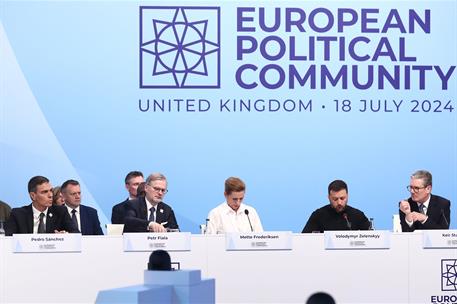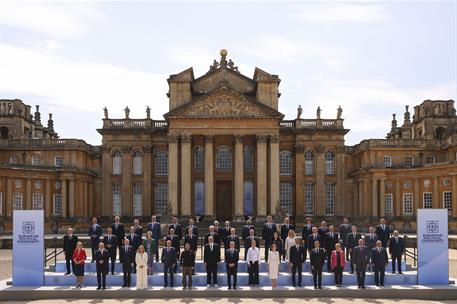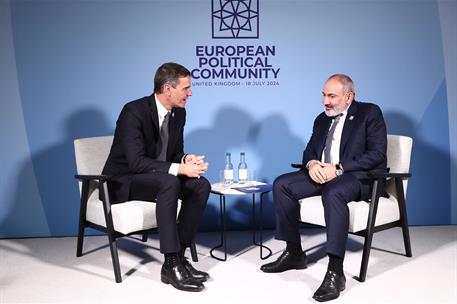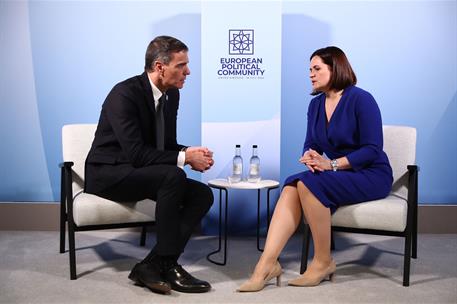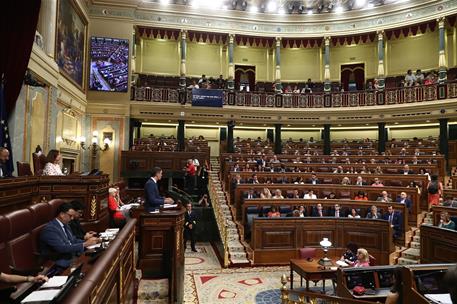European Political Community Summit
Pedro Sánchez stresses the need for Europe to strengthen its democracy in the face of disinformation and the dissemination of fake news
President's News - 2024.7.18
Images of the arrival of the participants to the plenary session | Pool Moncloa/Jorge Villar - 2024.7.18
Blenheim Palace, Woodstock (United Kingdom)
The Summit, which brought together some fifty leaders from across Europe, was an important forum for discussion and action on the challenges facing the continent. In this regard, the leaders addressed, in working groups, some of the main issues for Europe such as the war in Ukraine, migration and defending democracies.
In relation to the war in Ukraine, the president of the Government of Spain highlighted Spain's clear position on the matter, as well as the message of unwavering support for Ukraine and President Zelenskyy from the leaders of most European countries.
With regard to migration, Pedro Sánchez underlined the Government of Spain's consistent policy on migration, with the development of a positive discourse on migration, and highlighted the issue of inter-territorial solidarity and tackling this challenge in a humane manner.
The president of the Government of Spain took part in the working group on disinformation and defending democracies, chaired by the President of the European Council, Charles Michel, and the President of Montenegro, Jakov Milatović.
In his speech, Pedro Sánchez stressed the need to defend democratic values and institutions against of the subtle risks and threats facing democracies, such as the spread of fake news and disinformation. In this respect, the president of the Government of Spain has highlighted the value of the Democratic Action Plan, which was submitted yesterday in the Lower House of Parliament, which is in line with the European Commission and the latest EU regulation on freedom and pluralism in the media. In this context, Pedro Sánchez stressed that this Plan aims to preserve the vital spaces that allow the system to function: the executive, the legislative and the media.
At the end of the closing plenary session, the European leaders participating in the European Political Community Summit attended a reception hosted by H.M. King Charles III.
Bilaterals on the fringes of the Summit
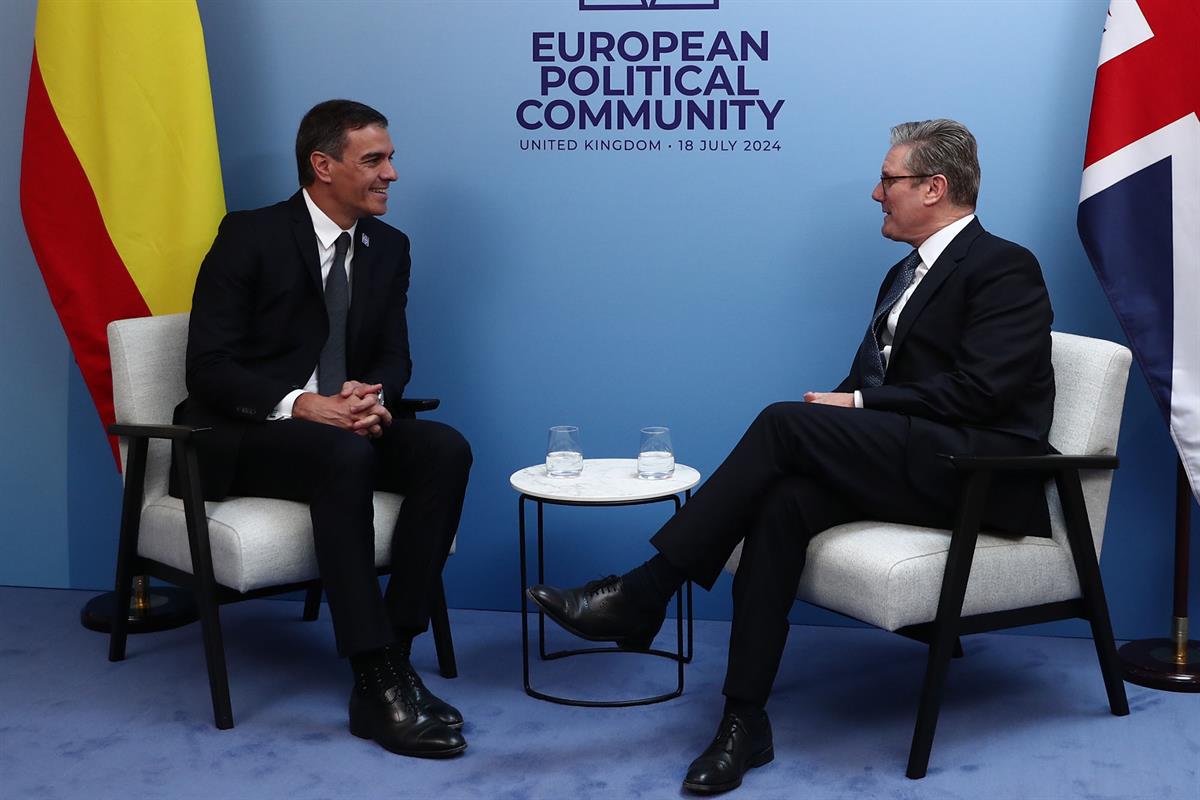 Meeting between the President of the Government of Spain, Pedro Sánchez, and the Prime Minister of the United Kingdom, Keir Starmer | Foto: Pool Moncloa/Fernando Calvo
Meeting between the President of the Government of Spain, Pedro Sánchez, and the Prime Minister of the United Kingdom, Keir Starmer | Foto: Pool Moncloa/Fernando Calvo
Throughout the day, the president of the Government of Spain has held various bilateral meetings with other European leaders. He met with the new Prime Minister of the United Kingdom and host of the summit, Keir Starmer, with whom he discussed the excellent bilateral relationship between the two countries. In this regard, Pedro Sánchez has stressed the need to create a framework for bilateral and structured dialogue, and has shown his constructive attitude in order to reach an agreement on Gibraltar.
He also stressed that the deep ties that Spain and the UK share are an example of what the new relationship between the EU and the UK can be.
The president of the Government of Spain held a bilateral meeting with the President of Ukraine, Volodymyr Zelenskyy, to whom he conveyed Spain's support for as long as necessary. Sánchez also reiterated to Zelenskyy his support for his initiative to hold a second Peace Summit in Ukraine with all the actors involved.
He also met with the Prime Minister of the Netherlands, Dick Schoof, with whom they agreed on the importance of continuing to support Ukraine, as well as continuing to work together on strategic issues for both countries and for the European Union, such as the single market and open strategic autonomy.
Pedro Sánchez also held a meeting with Bjarni Benediktsson, Prime Minister of Iceland, to whom he expressed his appreciation for the forthcoming opening of the Icelandic Embassy in Spain in 2022, a symptom of the good relations between the two countries.
The president of the Government of Spain also met with the Prime Minister of Armenia, Nikol Pashinian, with whom he agreed on the growth of relations between the two countries, as well as with the opposition leader of Belarus, Svetlana Tikhanovskaya.
Non official translation
